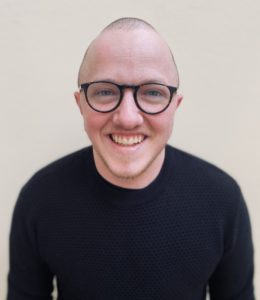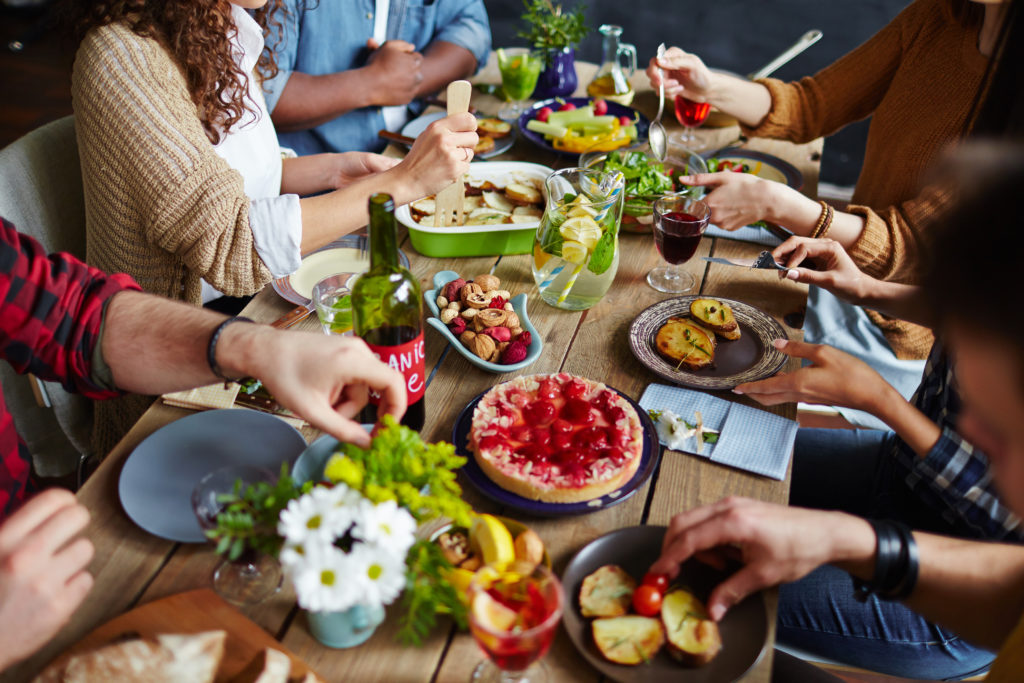I’ve been off social media for a bit. Stepping back from the constant doom scrolling was great for my mental health and feeling like I had my brain back. However, I recently got back on to check in and see what folks were posting about related to post-election and the holidays.
Now as the holiday season is underway, I also began processing my own feelings around this time of year. I was considering what I would do this year to take care of myself through what has often been an emotional time that has its awful and tender roots for me and my own journey growing up in foster care. Immediately, I noticed all the postings from folks who are disappointed about staying put this holiday season for the safety of their family, friends, and loved ones.
And then it hit me.
This holiday season might be the first time that a lot of folks experience what current and former foster youth, like myself, have experienced on far too many holiday seasons—as well as youth and adults who have no family or are currently disconnected from their families for personal, social, or political reasons.
The truth is, holidays in general have always been hard for me, mainly because I left foster care without what is euphemistically referred to as a “permanent family.” It’s always been particularly tough when it comes to gathering together and trying to awkwardly find a place as a guest in other families’ homes—but nothing can come between me and my Mariah Carey Christmas music.
Too often, young people who age out of foster care, especially LGBTQ+, Black, Brown, and/or Indigenous youth, are rejected from their families, and this rejection is felt particularly acutely on holidays. While the primary goal for children and youth in foster care is to find “permanent” homes, these systems constantly fail them, and that leaves them with little to no support and without a place to call home when they exit foster care. In part because of their houselessness, they are now—due to the pandemic—at a disproportionately higher risk of contracting COVID-19, and, if they were working, are more likely to have lost employment.
In my return to social media, I was relieved to learn that many of my peers, and even folks I didn’t know, were realizing the same thing I was that this year, in that infamous 2020 fashion, is like no other. Folks were realizing this particular holiday season is hard. Unfortunately for me, and others who grew up in foster care, this year is like many others. Holidays are hard because I wrestle with what the research calls “ambiguous loss” all the time. Between experiencing foster care and my queer and trans identities, I’ve had to also create my own set of families. And I’m not alone, many young adults are in the same situation.
A buoy for me growing up was building connections with people who weren’t related to me but were serving in some official capacity in my life, like teachers or counselors, who showed me the attention and care I didn’t get in my own home. Teachers became the reason to come to school, since friendships with my peers were hard to establish when other kids didn’t understand my homelife, let alone life in foster care. Then, after entering foster care, I built a second “family” in a church community in high school, and that was the first time I felt welcomed in a family and a community. These were moms and dads I imagined would be the people at my graduation or other major life events. The problem, though, was that I was closeted about my sexuality at that time, still identifying as a woman, and didn’t transition until I was out of college years later.
When that community learned I was seeing another woman in the church, I entered conversion therapy. Within six months I left that church because I couldn’t continue trying to “fix” parts of me that weren’t the slightest bit broken. There I was, with family one day, gone the next, having to find a way to manage holidays on my own. Eventually I just opted to go it alone unless I spent it with a partner’s family, which came with its own complexities and confusion as I tried to understand their traditions. Explaining my childhood became tiring. Finally, I learned that the traditional family model wasn’t for me. Now, by connecting with other foster care alumni and community I’ve met by coming out as a lesbian and then as transmasculine nonbinary, I found my chosen framily (friends who make up family). They now live all over the US and represent different pieces of a framily puzzle I’ve intentionally built over the years.
Chosen framily is important because for me it is suicide prevention. These are the folks who remind me who I am, help me grow, and show me what is up from down when I get lost. These are the folks who don’t push too hard on my desire to go quiet on holidays; they respect it, even if they don’t understand it. They invite me anyways in case I change my mind, but also take time to make sure I know that I’m loved and part of their framily. This is the kind of family I would love to have found in foster care, but I also wouldn’t trade the community that surrounds me now. Support like this is something everyone should have.
Before March of 2020, if you hadn’t experienced certain struggles, you‘re likely either facing them now, or you’re currently living through one and have made it to the “other side.” There are, however, many folks whose struggles before 2020 mirror what the country and the world are now feeling, and they have felt this way for a very long time, myself included. For us, no pandemic was needed. We have always had to adapt. The experience that at first I thought we are all sharing “collectively” is actually vastly different, depending on where you find yourself in society. For some, this is the first time they’ve felt alone or disconnected from family and friends. For others—those who have long felt disconnected from family during the holidays (people who have been marginalized, immigrants, and folks in the diaspora)—these feelings are not new.
I understand that this year feels hard because all of our traditions are being upended for the sake of safety. But I can’t help feeling like being apart from friends and family is a small sacrifice for the hope of spending future holidays with them. So please know that while this may be a tough season for you to miss the family traditions of years past, speaking as a former foster youth who has done this for a long time: you will be okay. You will find new ways of celebrating this year with new, meaningful rituals, experiences, and even new traditions.
I have begun to cope with this holiday period by creating my own traditions and experiences. I find that I actually enjoy spending these days by myself, often reflecting on years past. In this way, I find myself with less pain and can more easily focus on where I have been and where I am now. I find joy in the little things, especially doing non-traditional activities like choosing what to cook, enjoying foods that maybe are not the traditional dish of a given holiday, or just eating comfort foods. I’ve driven to the Oregon coast for a day trip just to enjoy the ocean and the sand on the beach. I’ve checked in with folks in similar situations to my own, which may not sound like much, but I have previously spent holidays in a place where thoughts of suicide were at an all-time high. I wondered why I wasn’t adopted, or why I didn’t feel like I had my “family” or a place where I could feel like I belonged, no matter what. It has taken time, and it’s a lifelong battle, but I spend far less time in the trap of comparison, especially after this year.
All I ask of you is that when this pandemic is over, remember what you learned. Remember the lessons that came, even the painful ones. Remember that you have been given the gift of insight into the lives of people you may never know and of folks you may have known all your life. This is an opening, an invitation to compassion and understanding, and, as disconnected as we are now, it is actually an invitation to connection.

Elliott Orrin Hinkle is a consultant focused on child welfare, the LGBTQ+ community, and youth mental health. A young adult with their own lived expertise in the child welfare system and as a queer and trans person, they work closely with the Youth Thrive initiative as a Youth Ambassador, advisor, and trainer.
